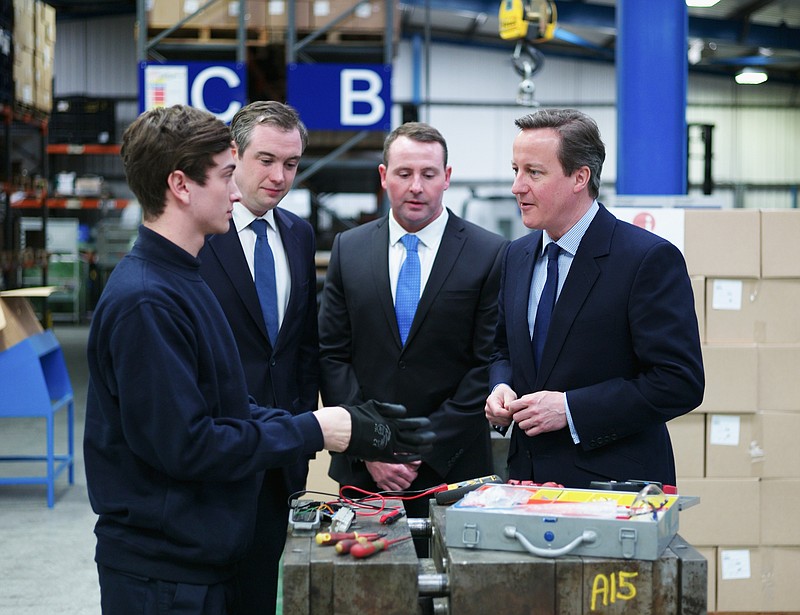LONDON (AP) - The U.K. has narrowly avoided a drop in consumer prices as the cost of filling up a car rose in March - a development that's likely to ease concerns of a deflationary spiral that can hurt the economy.
Official figures Tuesday showed annual consumer price inflation in the U.K. was flat for the second month in March, a full two percentage points below the Bank of England's target. Unlike previous months, the price of car fuel edged up, offsetting falls in heating gas and clothing and footwear.
Many in financial markets were predicting a negative inflation rate, which would have been the first decline since records began in 1989. The statistics office estimates consumer prices were last negative temporarily in 1960.
An extended drop in prices can weigh on an economy if consumers delay spending, particularly on big-ticket items, in hopes of securing bargains in the future or businesses fail to innovate and invest amid falling profits.
But many economists think the current low inflation is a boon to consumers as it's largely due to the near 50 percent fall in global crude oil prices in less than a year. March's increase in car fuel prices has come amid signs of stabilization in the crude market. Intense competition among retailers has also contributed to the recent sharp falls in the inflation rate.
"Falling prices have seen money go that bit further for households' weekly shop, and many firms are benefiting from lower oil prices," said Rain Newton-Smith, director of economics at business lobby group, the Confederation of British Industry.
With wage increases now outstripping inflation, the governing Conservative Party will be hoping to capitalize on the potential rise in living standards as it campaigns for the country's general election on May 7. Opinion polls suggest the election is too close to call.
Britain's economy minister, George Osborne, was quick to welcome the news, saying on Twitter that the flat inflation rate was "good news for family budgets." But Chris Leslie, an economic spokesman for the Labour Party, said a "few months of falling world oil prices won't solve the deep-seated problems in our economy or make up for years of bills rising faster than wages."
However the news plays out at the ballot box, the prospect of very low or negative inflation is the main reason why few economists think the central bank will raise its main interest rate from the record low of 0.5 percent this year even though the economy is growing strongly - 2.8 percent in 2014.
